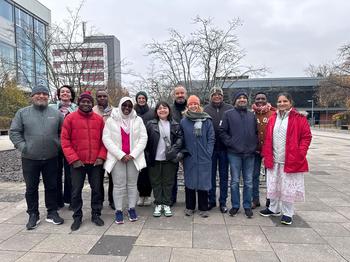About the Project
This project establishes an interdisciplinary research consortium of medical entomologists, ecologists, anthropologists and geographers to study the entangled mobilities of humans and Aedes mosquitoes in India, Mexico, Tanzania and Germany. The invasive mosquito species Aedes, vector for a variety of arboviral diseases, is taken as a paradigmatic case of how human and nonhuman mobility converge in contemporary societies. The team monitors the presence and abundance of Aedes mosquitoes in and through human transport. This sheds light on the socioecological dynamics that stem from these entangled mobilities, answering the question what role infrastructures play in the transmission of infectious diseases. Understanding human-mediated dispersal empirically increases the predictive power of models by taking into account how the lived geographies of Aedes and humans intersect. Based on the results of the pilot phase, the project produces scientific evidence for understanding risk exposure, mitigating adverse events and developing mobility-related measures in response to Aedes and its associated global health challenges. The project is designed as a cross-disciplinary study with sampling methods from entomology and molecular biology (a.o. ELISA, sequencing for population genomics and eDNA analyses) as well as social sciences (semi-structured interviews, participant observation, ethnographic method “go-along”). It facilitates pro-active community engagement by involving citizens and decisionmakers along the research and developing living maps for documentation. As a result, overlaying mobility maps will provide a transnational cartography of entangled human and mosquito mobility in Tanzania, India, Mexico and Germany.
General Goals:
- Promote transdisciplinary and multi-country research aimed at bridging the gaps in the knowledge on invasion biology linked to human mobility infrastructure.
- Investigate the associations between human and cargo transportation networks and the risk of mosquito-borne diseases.
- Strengthen legislations, health systems and promote public health action through community mobilization and involvement.
- Build control and prevention strategies with local and regional impact.
Funding:
The research project was approved in 2021 and is currently running until 2027. The project is generously funded by the Volkswagen Stiftung (Funding application ID 9B366) in collaboration with Fundatión "la Caixa", Novo Nordisk Foundation and the Wellcome Trust.

